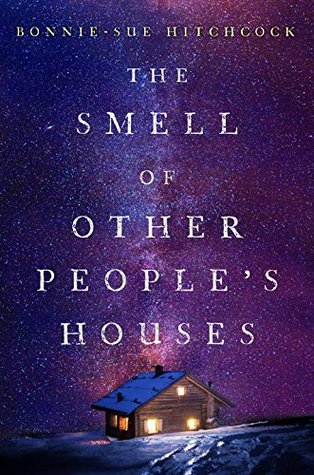
Genre: YA, general market.
In Alaska, 1970, being a teenager here isn’t like being a teenager anywhere else. Ruth has a secret that she can’t hide forever. Dora wonders if she can ever truly escape where she comes from, even when good luck strikes. Alyce is trying to reconcile her desire to dance, with the life she’s always known on her family’s fishing boat. Hank and his brothers decide it’s safer to run away than to stay home—until one of them ends up in terrible danger.
Four very different lives are about to become entangled.
MY THOUGHTS:
This Young Adult novel is a bit like a jigsaw puzzle, which we don't realise we've completed until the end. The four teenage narrators aren't close friends. Some don't even know each other, and those who do don't necessarily like each other. In addition, there are other characters who could also be considered main protagonists. By the end, the significance of every seemingly random person and event is revealed. It's fun for a reader to be able to say, 'Oh, so that's where he fits.'
Ruth and her younger sister live with their restrictive and distantly remote grandmother. When Ruth accidentally falls into some unexpected trouble, she doesn't know where to turn.
Dora has grown up with a violent, drunken father and learned not to trust people until they prove themselves worthy, even if they look OK. Winning a huge windfall changes her life, but not necessarily in ways she expects.
Alyce feels like a split person, as she lives distinct lives with each of her divorced parents at different times of the year. She's a talented ballet student who can't pursue her passion during the summer months while she lives with her father on his fishing boat.
Hank and his younger brothers, Sam and Jack, have stowed away on a ship to escape from their mother's aggressive boyfriend.
Overall, perhaps it's too short a novel with too many characters and changing points of view to delve really deeply with any of them. It covers a short chunk of time in which several astonishing things happen. Some coincidences and emotional ties are stretched almost beyond credibility at times, but not quite. For example, Hank and Ruth manage to make a deep impression on each other after a chance encounter when they don't even exchange words. However, other things are well left out. We don't get to actually see how badly the boys were treated by their mother's boyfriend, but since all three brothers are unanimous in their desire to escape, we don't need much detail. As it's written to be a hope-building, optimistic novel, I'm glad the details were sketchy.
Dora's habit of pessimism is an interesting theme. It's so deeply rooted, she finds it hard to stop thinking of herself as a person who attracts bad luck, even when she wins the Ice Classic raffle. As it turns out, there are negative aspects to her stroke of good fortune, which she naturally highlights in her own mind. It's good to read the ways in which Dora realises that she needs to live with a more optimistic outlook for her own sake.
The novel provides a great insight into the lifestyles of Alaskan teenagers, which is guaranteed authentic because it's based strongly on the author's own past. Readers learn a lot about the fishing industry, with its beauty and superstition. And it's interesting to find out why not everybody was overjoyed when Alaska was included as one of America's 50 states.
I was pleased to see some really praiseworthy fathers. Dora's hostile, destructive dad is outnumbered by the loving, considerate fathers of Dumpling and Alyce, and the fond memory of Ruth's. It's great to come across a Young Adult novel with so many positive male role models.
What possibly draws many readers to this novel is the title, which does have some significance. In the very first chapter, Ruth reflects that you can guess a lot about other people by the different smells of their houses. The smell motif recurs often for all four narrators, emphasising the fact that everyone has their unique stories. It's handy for bringing descriptive passages to life too. And there's a wider application for the way we choose to spend our lives. Even when we grow so used to the smells of our own houses that we no longer notice them, it may be wise to remember that they are fresh impressions for the people we meet.
3.5 stars

No comments:
Post a Comment